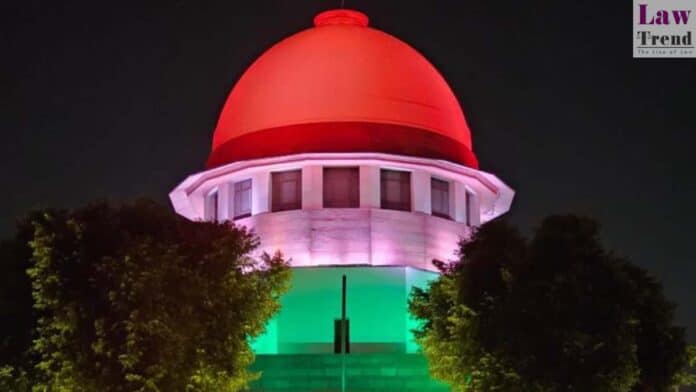The Supreme Court on Wednesday told Sterlite Copper, a Vedanta group firm, that it cannot be oblivious to the wider concerns of the local community in Tamil Nadu’s Thoothukudi and will have to implement the environmental safeguards suggested by the proposed expert panel before its plant can be reopened.
The court had said on February 14 that a panel of domain experts may be set up to inspect the closed plant, suggest further compliance of green norms, and the way forward.
The plant has been closed since May 2018 after 13 people were killed as police opened fire to quell a protest over alleged pollution caused by it.
A bench of Chief Justice DY Chandrachud and justices JB Pardiwala and Manoj Misra said keeping the plant shut would not serve any purpose but at the same time the court has to be mindful of public health and welfare.
“They are voiceless people. They all cannot come here. We cannot be oblivious to the wider concerns of the community,” CJI Chandrachud said, adding, “We may not be able to direct that you start operating today but we can ensure that terms are put to you by an expert panel so that a red category industry can start on deposit of a certain amount and on satisfying environmental safeguards.”
Industrial units with a pollution index score of 60 or above are categorised as red.
The bench told senior advocate Shyam Divan, appearing for the company, that it cannot fault the high court verdict which upheld the closure and said if there is a gas leak in future the moral responsibility would lie with this court.
Divan, while suggesting the way forward, said the court may appoint a committee of experts comprising representatives of the ministry of environment, forests and climate change (MoEF&CC), National Environmental Engineering Research Institute (NEERI), Central Pollution Control Board (CPCB), IIT, Tamil Nadu Pollution Control Board (TNPCB), Vedanta and three independent experts.
“It is suggested that the committee be chaired by a retired justice of the Supreme Court,” he said, adding the panel may be requested to submit its report within a month.
Divan added the remit of the committee could be to make recommendations and suggest conditions for resumption of operations at Vedanta’s copper smelter unit, including additional environmental safeguards, if required.
“Pending receipt of the report, the petitioners may be permitted to carry out refurbishment, repair and maintenance of the unit at the petitioner’s risk and cost,” he said, while clarifying this work will not involve any production activity.
Divan suggested that for the purpose of giving effect to the order of the apex court, the closed unit shall be de-sealed and power supply to it restored only to facilitate the preparation of the report and for carrying out refurbishment, repair and maintenance.
Senior advocate CS Vaidyanathan, appearing for the Tamil Nadu government, said committee after committee has found evidence of pollution at the plant.
He added the state government has taken a decision that this industry cannot be allowed to operate and any committee formed cannot override the judgement of the high court.
CJI Chandrachud said the committee will put terms before the company and it will be ensured that they are complied with.
When Vaidyanathan referred to a copper plant coming up in Gujarat, the CJI questioned why the Tamil Nadu Pollution Control Board (TNPCB) had given approvals to Sterlite to operate in the state.
“Indian law does not bar smelting of copper,” Justice Chandrachud said.
Vaidyanathan added the argument advanced by Vedanta group that closure of the plant will have an adverse impact on the economy was not true as Thoothukudi is about to become an auto hub with some new MoUs inked on Tuesday.
The hearing remained inconclusive and would continue on Thursday.
Also Read
On February 14, the top court proposed a panel of domain experts to inspect the closed Sterlite copper unit, saying shutting down a plant of “national importance” will not serve anybody’s purpose.
Divan had argued that since the matter pertains to the state’s public interest, private interest of an industry, and employment of several people, a way forward has to be found out.
At least 13 people were killed and many injured on May 22, 2018, when police opened fire on a huge crowd of people protesting against pollution allegedly caused by the copper smelting unit and its proposed expansion.
Subsequently, the Tamil Nadu government and the TNPCB ordered closure of the mining group’s plant over pollution concerns.
The top court had in May last year asked the Tamil Nadu government to take appropriate decisions in pursuance of its April 10 direction by which it had allowed the Vedanta group to carry out the upkeep of the unit under the supervision of a local-level monitoring committee.




